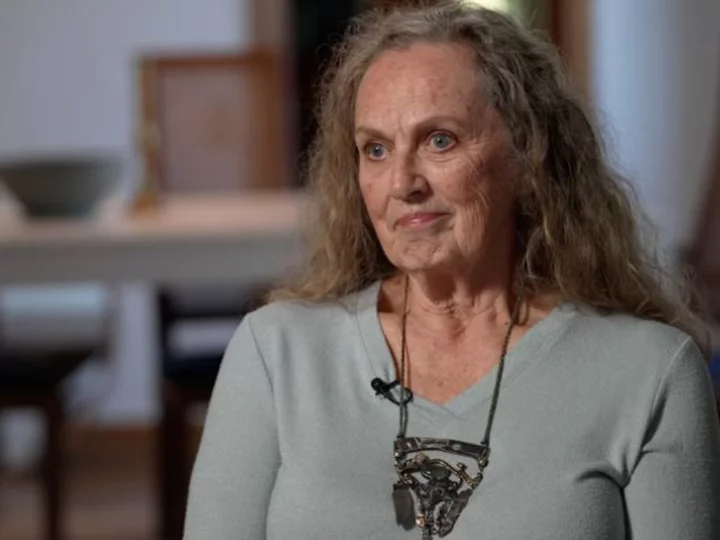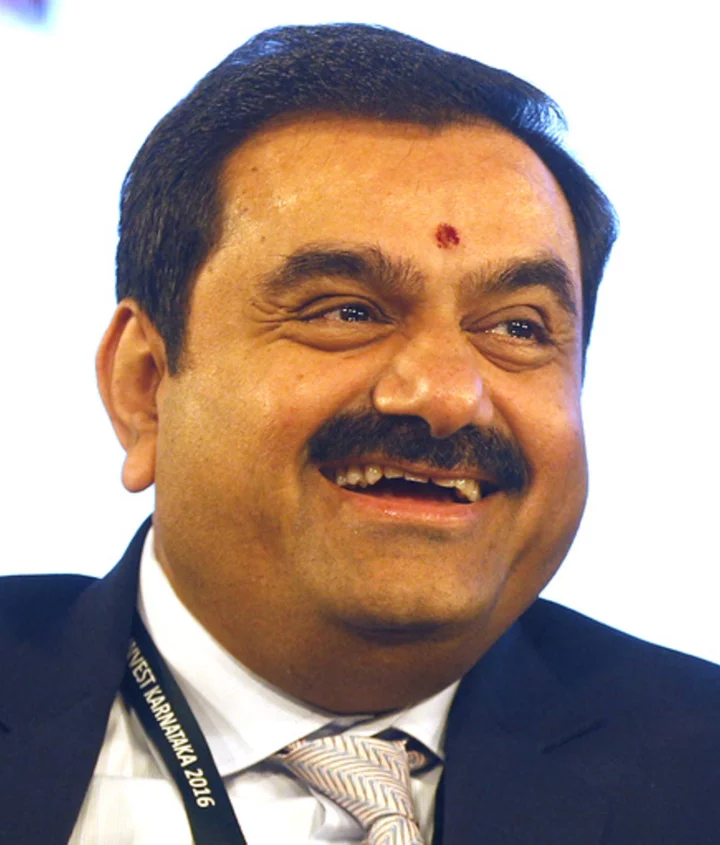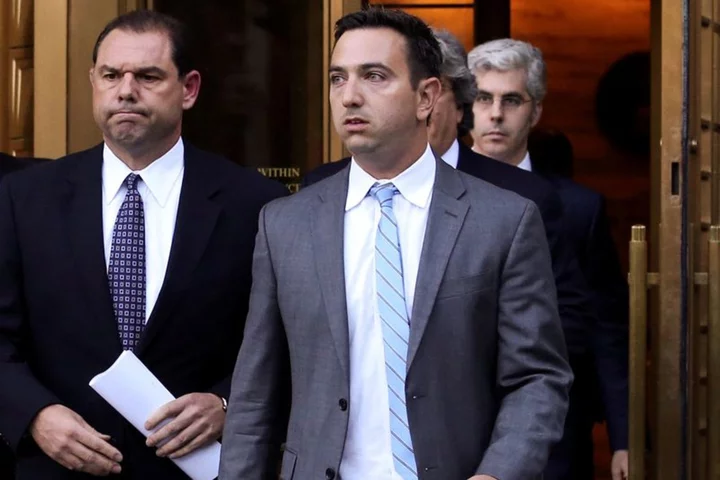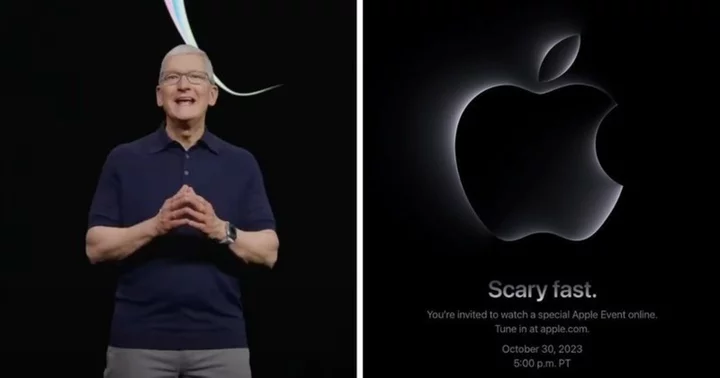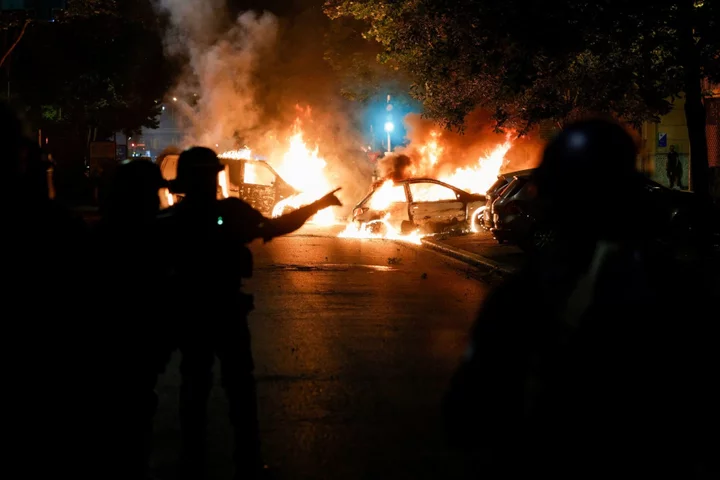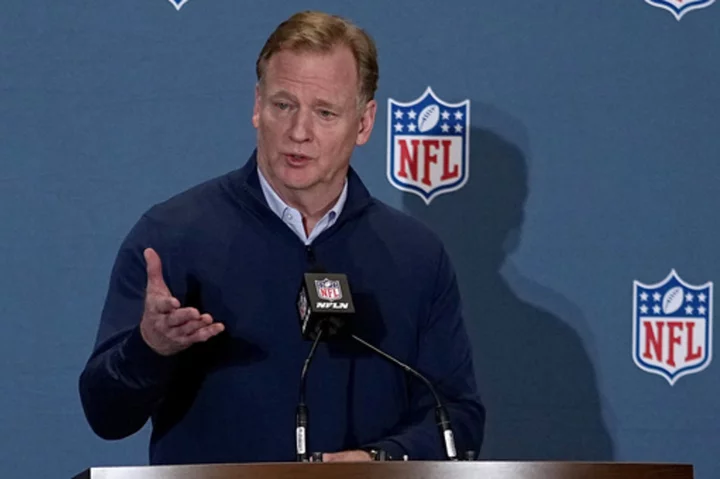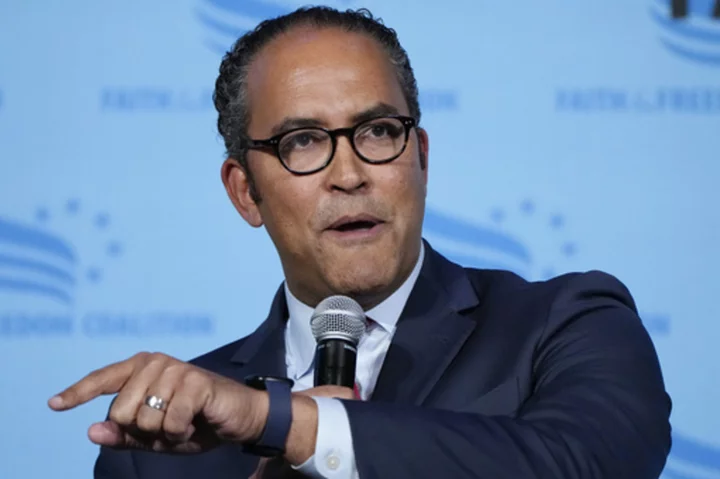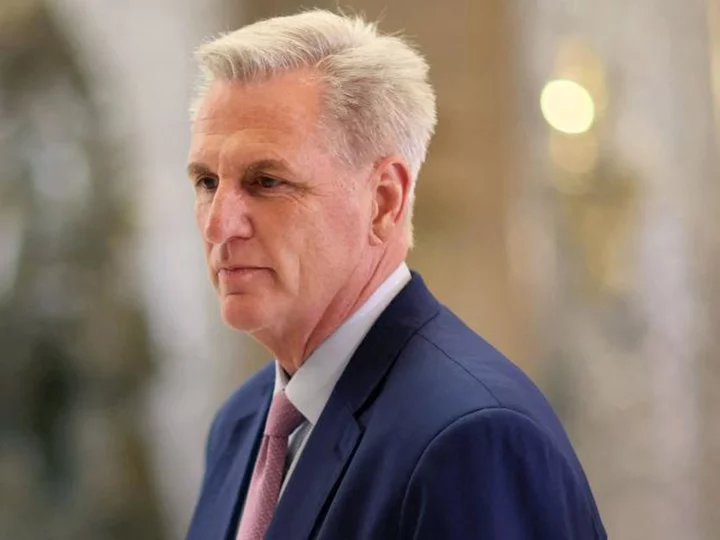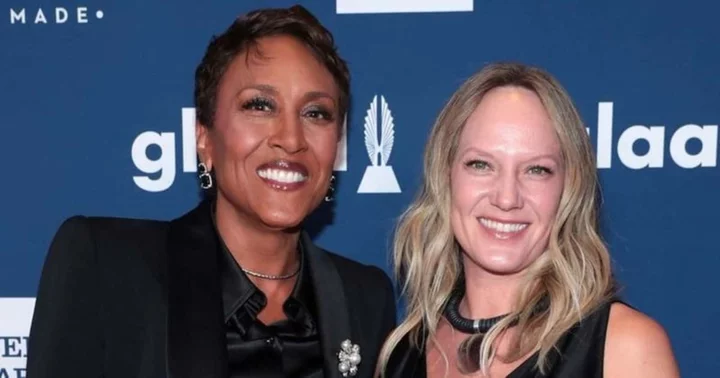"Now the family tree goes like this," the man on the tape extolled confidently. "John John and...Trump are cousins. And Trump's uncle is JFK Sr., and Joe Kennedy, who is also not dead.... And Trump's father is General George Patton, and his brother is Mussolini..."
Colleen Protzman listened on, despondent. The man talking on the tape was her son, Michael Protzman.
"And the thing is," she said, "he believes that."
Her son had become the leading figure in a QAnon off-shoot that believed John F. Kennedy Jr., who died in a plane crash off Martha's Vineyard in 1999, was alive and secretly working with former President Donald Trump to save the United States from an evil cabal.
It's the kind of conspiracy theory that one might assume manifests only in the dark corners of the internet.
But that changed on November 2, 2021, when hundreds of people from around the country gathered at the infamous grassy knoll in Dallas' Dealey Plaza, where President John F. Kennedy was assassinated in 1963. The congregation wasn't there to commemorate the death of the 35th President of the United States. They were there to see what they desperately hoped would be the return of the Kennedys.
"Word on the street is Junior — JFK Jr —will show up and introduce his parents," one believer told the local WFAA news crew who had rushed to the plaza after hearing reports of a large crowd gathered. Asked what he expected would happen, the man earnestly replied: "He'll (JFK Jr.) probably be the vice president with Trump."
The late JFK and his son failed to materialize. Most of the gathered crowd went home and moved on with their lives, some of them disappointed the impossible hadn't occurred. But others stayed, waiting for months in Dallas for the Kennedys to return.
Somehow, the Kennedys, a family dynasty that once embodied the Democratic Party, had become heroes in a movement that also worshipped Trump. A bizarre blend of American lore, dating back to JFK's assassination, along with biblical and QAnon-adjacent prophecies, suggested the Kennedys and Trump were direct descendants of Jesus Christ and were the heroic protagonists in an age-old battle of good versus evil.
The tale is objectively wacky, yet it managed to strike a chord. Hundreds of people showed up that day in Dallas hoping for at least one Kennedy to reemerge. Others left their lives, families and jobs behind entirely for months waiting on that false promise. But why?
To dismissively reduce the answer to this question as a collective delusion of "QAnon crazies" is to ignore the profound impact fringe conspiracy theories are having on American families and American democracy.
These false beliefs are a symbol and symptom of a broader ideology that thrives on anger, disillusionment and loneliness and is fueled by politically and financially motivated opportunists who have weaponized the community-building capabilities of social media.
Michael Protzman got swept up in this alternate reality.
Depending on who you ask, Protzman was either a victim whose convictions and worldview were so radically altered by what he was reading on the internet that it cost him his family, his home and his business. Or he was a manipulative opportunist who conned his followers into believing a warped QAnon-style biblical prophecy that tore them away from their families -- some of whom believe he spawned a cult.
To better understand how online misinformation is affecting American families, CNN spent the past year tracking Protzman and his followers for a documentary that will air on CNN as part of The Whole Story with Anderson Cooper series.
We spoke to dozens of Americans whose lives and families have been affected by conspiracy theories, including Protzman's own family.
In June, Protzman was severely injured in an accident on a motocross track in Minnesota and died a few days later. He was 60 years old.
But the tragic tale of Michael Brian Protzman began long before the accident.
Prey
Michael "wasn't a computer person," his mother, Colleen Protzman, said. But in the years after the 2008 financial collapse, he began researching online about investing in silver. Many websites that tout the sale of precious metals like silver rely on doomsday conspiracy theories of a global monetary collapse to convince people to hand over their cash.
At the time, Michael was living with his wife and two children near Seattle. He ran a demolition business but was worried about his family's financial future. "He knew that he wasn't going to be able to keep doing this work forever because it's really hard on your body," his mother told CNN.
It was with those worries, and some other personal family problems, that the conspiracy theory sites began to suck him in.
Over time, his fear became palpable -- the US dollar was about to collapse. He wanted his mom to cash in her 401(k) retirement savings and invest it into silver, she said.
"He just was so adamant about the fact that he was afraid that we, his family, his sisters and me and his wife and his daughter was going to be left without if we didn't all understand that this was going to happen and that we didn't invest," she explained.
After a few years, Michael's worldview had extended to conspiracy theories about the Sept. 11, 2001 terrorist attacks and the Sandy Hook elementary school massacre.
"I think he became more isolated," his mother said. "And the more isolated he became, the more he needed his family to agree with him, to believe everything that he believed. And we didn't."
Colleen Protzman agreed to speak to CNN in February this year because she wanted people to know who her son was before he had become an accused cult leader — in her eyes, the real Michael.
She spoke of a loving son, a hard-working dad, someone who was committed to looking after his family. She recounted one occasion when Michael was driving on Interstate 5 near their home in Washington state and spotted a family whose car had broken down in the pouring rain. Michael pulled over, helped the family get to a garage and new dry clothes. "That's the kind of person he was," his mother said.
But, she said, as the years went on and Michael fell further down the rabbit hole of conspiracy theories, he began engaging with QAnon -- the sprawling online delusion that claims former President Donald Trump is a hero set to save the US from an evil cabal of Satan-worshiping pedophiles.
It was quite the transformation -- Michael had voted for President Barack Obama twice, according to his mother, and had been a fan of liberal icon Rachel Maddow. He "thought she was fantastic, smart, right on," she recalled.
Eventually, conspiracy theories became all that Michael could talk about. His mother tried to help him debunk some of the misinformation he was sending her, but to no avail. Over time, he grew frustrated that his family refused to believe the same false claims he was espousing. His family grew frustrated, too, exhausted by his proselytizing.
By November 2021, as Michael and his followers made headlines across the country with their bizarre gathering in Dealey Plaza waiting for the Kennedys to inexplicably appear, he was no longer living with his family, his wife was preparing to file for divorce and his business had shut down.
The fascination with the Kennedys emanates from a QAnon mythology off-shoot. The anonymous online account with a long history of false predictions and nonsensical posts at the center of the QAnon phenomena, dubbed "Q," suddenly went silent for a period in 2018, giving way to another anonymous account that introduced the Kennedy narrative.
The conspiracy theory suggests, without evidence, that JFK Jr. didn't really die in a 1999 plane crash and that he is working with Trump to save America. Believers claim JFK Jr. will become vice president in the next Trump administration, with some going as far as to suggest JFK himself may walk among us again because he is Jesus Christ.
Indeed, some QAnon followers think this is wacky, and the original "Q" account, once it started posting again in 2018, disavowed the conspiracy theory. But still, the belief among some lives on.
Predator
"He took my person," Erica Vigrass said, holding back tears.
Her brother Jason went to Dallas in November 2021 to witness what he believed would be JFK's return and remained there. He spent months in Dallas and traveling around the country with Protzman and his followers to Trump rallies.
Jason, Erica believes, found Michael Protzman on Telegram, a social media messaging app that surged in popularity in the US after the January 6 attack on the US Capitol when major platforms like Facebook and Twitter shut down the accounts of prominent conspiracy theorists.
It was there Protzman found an audience, people who validated his beliefs in the conspiracy theories his family had been telling him for years were absurd. "I remember him telling his friend 'I'm on Telegram, and all of a sudden I have these followers,'" Protzman's mother recalled.
Protzman often delivered live sermons to his followers for hours at a time on Telegram. The long, meandering monologues included a dizzying use of gematria, the practice of assigning a numerical value to each letter of the alphabet (A=1, B=2, C=3... etc.). Protzman used gematria to try to prove connections between the likes of the Kennedys and Trump.
The nonsensical claims have nevertheless proven effective at drawing people in -- Protzman had tens of thousands of followers on Telegram -- including Erica Vigrass' brother Jason.
Vigrass and other families whose loved ones left home to follow Protzman believed him to be a master manipulator who cut people off from their families and overwhelmed them with wacky theories and gematria.
Erica said her youngest daughter once told Jason she had a fear of being kidnapped. After that, Erica said, Jason began reading online about instances of child abduction, trafficking and abuse in the US.
These are very real issues. But online, the reports of crimes and the claims around them have been weaponized, with bad actors spreading disinformation designed to exploit one of our most basic instincts -- to protect children. Democratic Party politicians and Hollywood celebrities have been labeled pedophiles and falsely claimed to be part of a cabal who abuse and traffic children.
It is a deeply unoriginal conspiracy theory that dates to the Middle Ages, when Jews were accused of using the blood of Christian children in rituals. But it has sustained through the centuries -- perhaps because of the instinctive emotions it stirs among believers.
"I think that one of the main things that caught Michael's attention was that there was such a concerted effort to harm children," Protzman's mother said. "There's this group, not only in our country, but in the world that controls everything. And their main thing is that they harm children in all kinds of awful ways. And that just set him off."
"These people are lost," she continued, "just like [Michael] became lost."
Protzman -- just like Jason -- was a victim in all this too, she believes. He fell down the rabbit hole the same way his followers had, he just went a lot further down it.
"They weren't forced to go to Dallas. They're not forced to be there, but they have been sucked in just like [Michael] has been sucked in," Protzman's mother said. "He didn't start out to have a cult," she said, though she acknowledged that her son had become complicit in the problem.
After Michael Protzman died this summer, some of his followers refused to believe he had passed. Like JFK Jr., some of them said, Protzman had faked his own death. Indeed, some believed it was possible Michael was JFK Jr.
Colleen Protzman hoped her son's death might be an opportunity for his former followers to reflect and return to their families. "Maybe they can put this behind them," she said, "and realize that whatever they were following or looking for, at least as this part is, is done."
Beyond JFK
The cases of Michael Protzman and Erica Vigrass' brother may sound extreme -- and in many ways they are — but they are also illustrative of a wider problem gripping potentially millions of American families. Vigrass never imagined that the conspiracy theories her brother was airing at the kitchen table could lead to him to join what she views as a cult.
"Take it seriously and know that it's far more insidious than it might seem," Vigrass warned. "If they're speaking to you about it, the amount it has consumed them is quite possibly far greater than you can imagine."
Families are often the only ones who see the devastating harm wrought by conspiracy theories when a loved one becomes consumed by false information.
"So much of the pain and trauma and destruction that QAnon is inflicting goes on behind closed doors, behind the scenes," said Jesselyn Cook, a journalist and author who has spent years talking to families contending with misinformation. "It's not playing out in the news. It's not playing out in the public eye. It's happening at the dinner table. It's happening over the phone with your grandmother."
These dangerous, alternate realities have torn families and the fabric of society apart and manifested in a deadly attack on the US Capitol. The further one goes down the rabbit hole the more likely they are to encounter, and perhaps accept, racist and anti-Semitic hate, researchers say.
Diane Benscoter, a former member of the Unification Church (better known as the "Moonies") who now runs Antidote, a nonprofit that helps people who have fallen victim to disinformation and cults, told CNN she has seen an explosion in people looking for help.
While there are an endless number of reasons why people have found themselves sucked into these alternate realities, all the families and experts CNN spoke with said a sense of belonging and community played a key role.
Bowling Alone, a seminal study published in 2000, documented the decline of social capital in the United States over the latter half of the twentieth century -- in part by observing the decline in membership of bowling and other social clubs.
The social media networks that have emerged since have driven many of us apart. Earlier this year, the US Surgeon General said loneliness and isolation had reached epidemic levels.
It's led Benscoter, a self-described former cult member, to believe that the proliferation of conspiracy theories in 21st century America should be treated as not just a political problem, or a mental health problem, but a public health problem.
The threat, she said, goes far beyond the splintering of American families, with the attack on the US Capitol demonstrating the dangerous potency of these lies.
"I think we're at a real, real crisis situation," Benscoter said. "I think that we could lose democracy."

